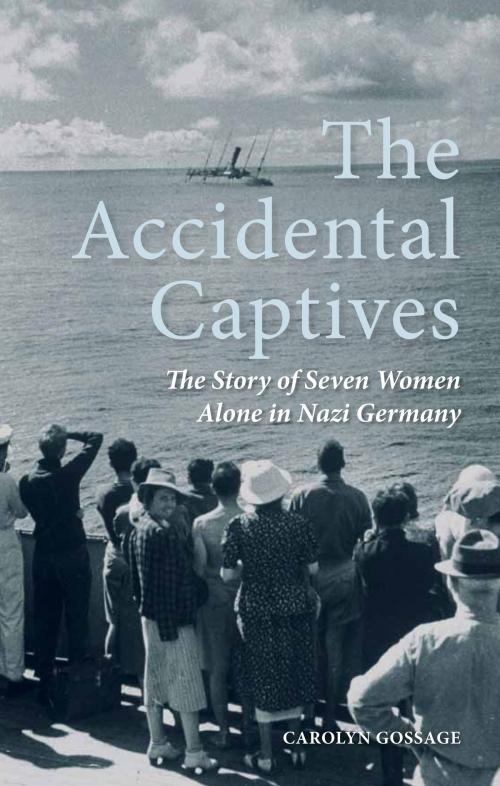The Accidental Captives
The Story of Seven Women Alone in Nazi Germany
Nonfiction, Social & Cultural Studies, Social Science, Gender Studies, Women&, History, Military, World War II, Biography & Memoir| Author: | Carolyn Gossage | ISBN: | 9781459703117 |
| Publisher: | Dundurn | Publication: | March 17, 2012 |
| Imprint: | Dundurn | Language: | English |
| Author: | Carolyn Gossage |
| ISBN: | 9781459703117 |
| Publisher: | Dundurn |
| Publication: | March 17, 2012 |
| Imprint: | Dundurn |
| Language: | English |
In April 1941, seven Canadian women became prisoners of war while on a voyage from New York City to Cape Town. Their aging Egyptian liner, the Zamzam, was sunk off the coast of South Africa by the German raider Atlantis. The passengers were transferred to a prison ship and eventually put ashore in Nazi-occupied France. As "non-aliens," all 140 Americans were released after five weeks in captivity, and with the help of theLifephotographer in their midst,the news of their narrow escape became an overnight sensation.
The hapless Canadians were taken to Bordeaux and became part of a group of 28 women and children interned in various German detention camps. By a stroke of luck, the Canadians eventually received permission to travel to Berlin where they were left to fend for themselves and adapt to life among "the enemy." As prisoners-at-large, they established contacts with American journalists and diplomats, an elderly Jewish professor, and even with Nazi propagandist P.G. Wodehouse. Finally, in June 1942, an exchange was arranged and the Canadians were able to board a special diplomatic Freedom Train bound for Lisbon, and from there they got back across the Atlantic to New York and new-found freedom.
In April 1941, seven Canadian women became prisoners of war while on a voyage from New York City to Cape Town. Their aging Egyptian liner, the Zamzam, was sunk off the coast of South Africa by the German raider Atlantis. The passengers were transferred to a prison ship and eventually put ashore in Nazi-occupied France. As "non-aliens," all 140 Americans were released after five weeks in captivity, and with the help of theLifephotographer in their midst,the news of their narrow escape became an overnight sensation.
The hapless Canadians were taken to Bordeaux and became part of a group of 28 women and children interned in various German detention camps. By a stroke of luck, the Canadians eventually received permission to travel to Berlin where they were left to fend for themselves and adapt to life among "the enemy." As prisoners-at-large, they established contacts with American journalists and diplomats, an elderly Jewish professor, and even with Nazi propagandist P.G. Wodehouse. Finally, in June 1942, an exchange was arranged and the Canadians were able to board a special diplomatic Freedom Train bound for Lisbon, and from there they got back across the Atlantic to New York and new-found freedom.















